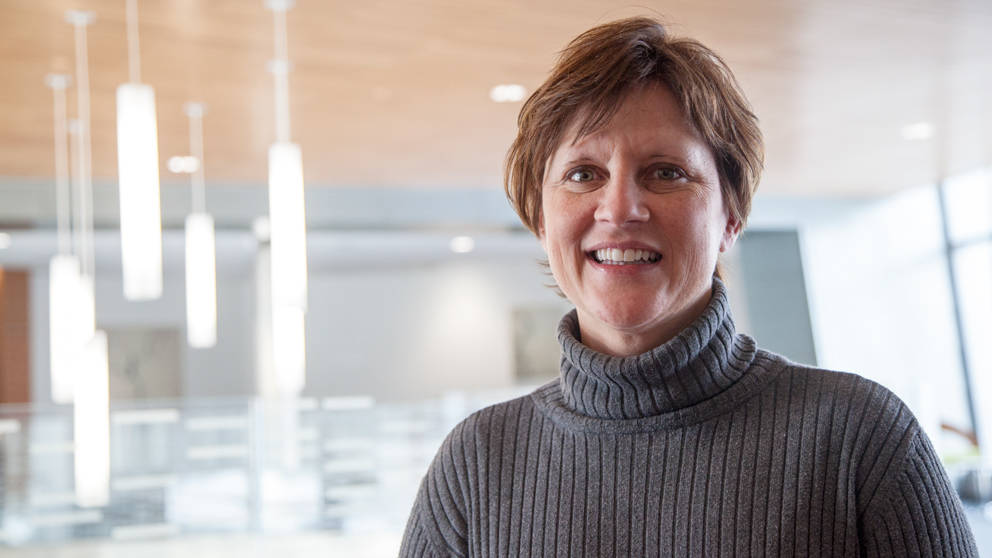
Susan Mockus, Ph.D., wants to overcome a language barrier. It’s not between English and Spanish — it’s the genomic vocabulary that oncologists and cancer researchers should share but too often don’t.
Mockus is The Jackson Laboratory’s manager of curation. She and her team develop genomic tools to improve the accuracy of cancer diagnosis and treatment, and are also working to integrate more detailed genomic profiles of patients and their tumors into clinical trials of new targeted therapies.
Today many clinical trials of cancer treatments involve some patient screening to identify a few genetic mutations, but given the vast number of mutations and genes that could potentially be involved in a patient’s cancer, their oncologists aren’t getting the full picture. Moreover, there’s a terminology problem in classifying those mutations.
“The way we name genes and variants is not consistent across the field and in the community,” Mockus said in a recent interview for Clinical Chemistry. So, she says, this can lead to multiple clinical trials that recruit patients with a particular cancer-related mutation, but that mutation could have a different name in each trial. Doctors and patients could fail to identify potentially beneficial trials.
And once clinical trials have concluded, she said, “there’s no consistent way that we capture mutational data, and that prohibits us from doing comparative analysis across different results from clinical trials.”
Mockus and Jackson Laboratory colleagues published a paper in Clinical Chemistry calling for the oncology and research communities to standardize how they name and report mutations and other biomarkers of cancer.
If today’s “language problem” causes some confusion and missed opportunities in identifying cancer treatments and clinical trials, it’s about to become a critical issue, Mockus says.
“Next-generation genomic sequencing for cancer screenings enable us to look simultaneously for thousands of mutations and hundreds of genes, all in the same test,” she explains. “That should be good news for the oncology patient: We increase the likelihood of detecting actionable mutations and match them to the most beneficial therapies with the fewest potential side effects.”
But unless the medical and research communities use consistent terms for all those mutations, that enhanced sequencing capacity won’t be as helpful to patients and oncologists as it should be.
The Jackson Laboratory’s own Cancer Treatment Profile next-generation sequencing service implements standardized terminology for mutations, and holds promise to not only help oncologists find the best available treatments for their patients, but also to build a data resource on specific cancers that will guide precision cancer treatments in the future.
“When a patient is screened through the Cancer Treatment Profile,” Mockus says, “we scan 358 genes for thousands of possible genetic variants, and distill them down to those that are actionable for the oncologist. So the doctor receives a clinical report noting known drug targets, oncogenes, tumor suppressor genes, genes that are frequently mutated in cancer, and genes that JAX researchers have identified as future targets for therapies. The report also notes any FDA-approved therapies for those mutations and any available clinical trials that the patient would be eligible for.”
Mockus and the clinical genomics group are reaching out to researchers planning clinical trials as well as oncologists and hospitals to expand the use of the Cancer Treatment Profile. “If we are to truly enter the era of precision cancer care,” she says, “we must gather as much information as possible about cancer mutations, identify them accurately and share what we learn with the world’s oncology community.”